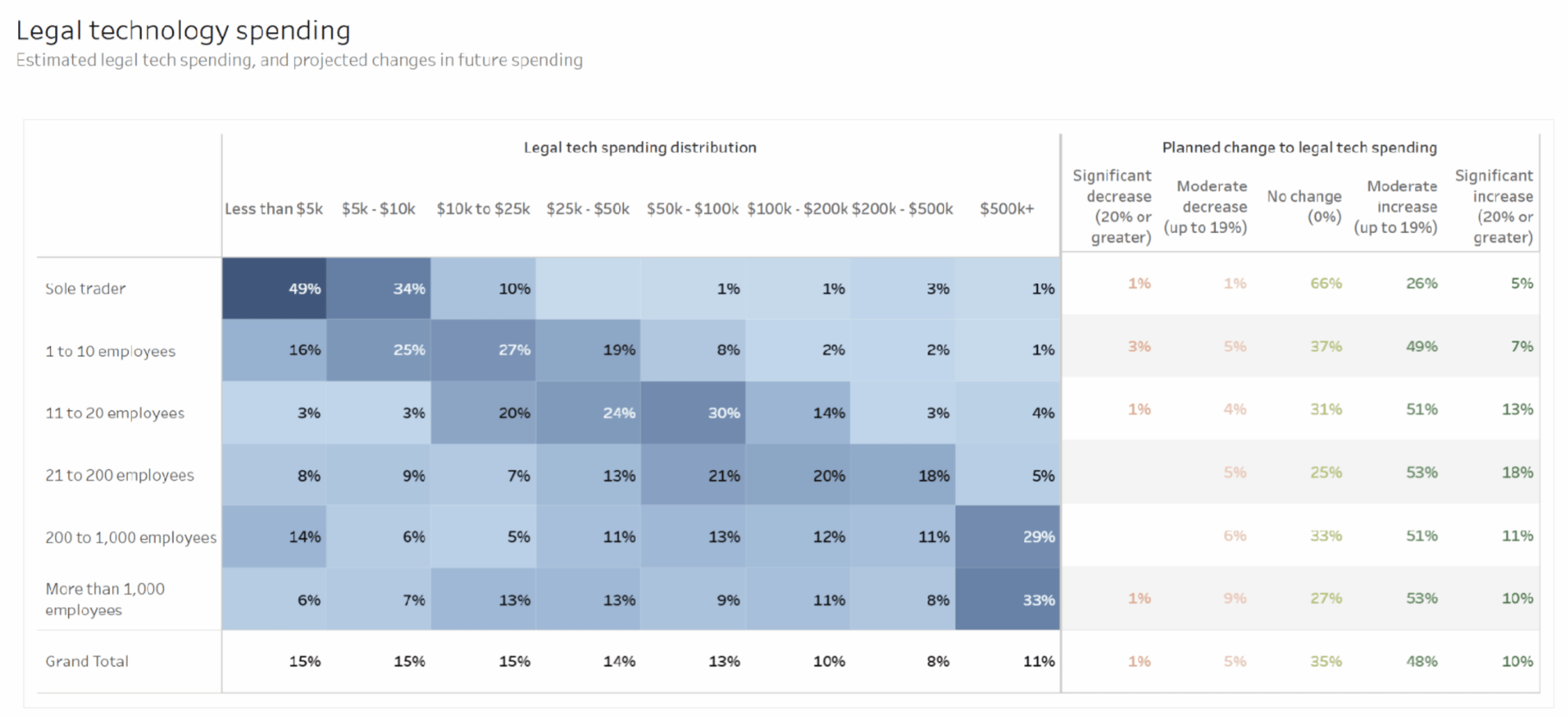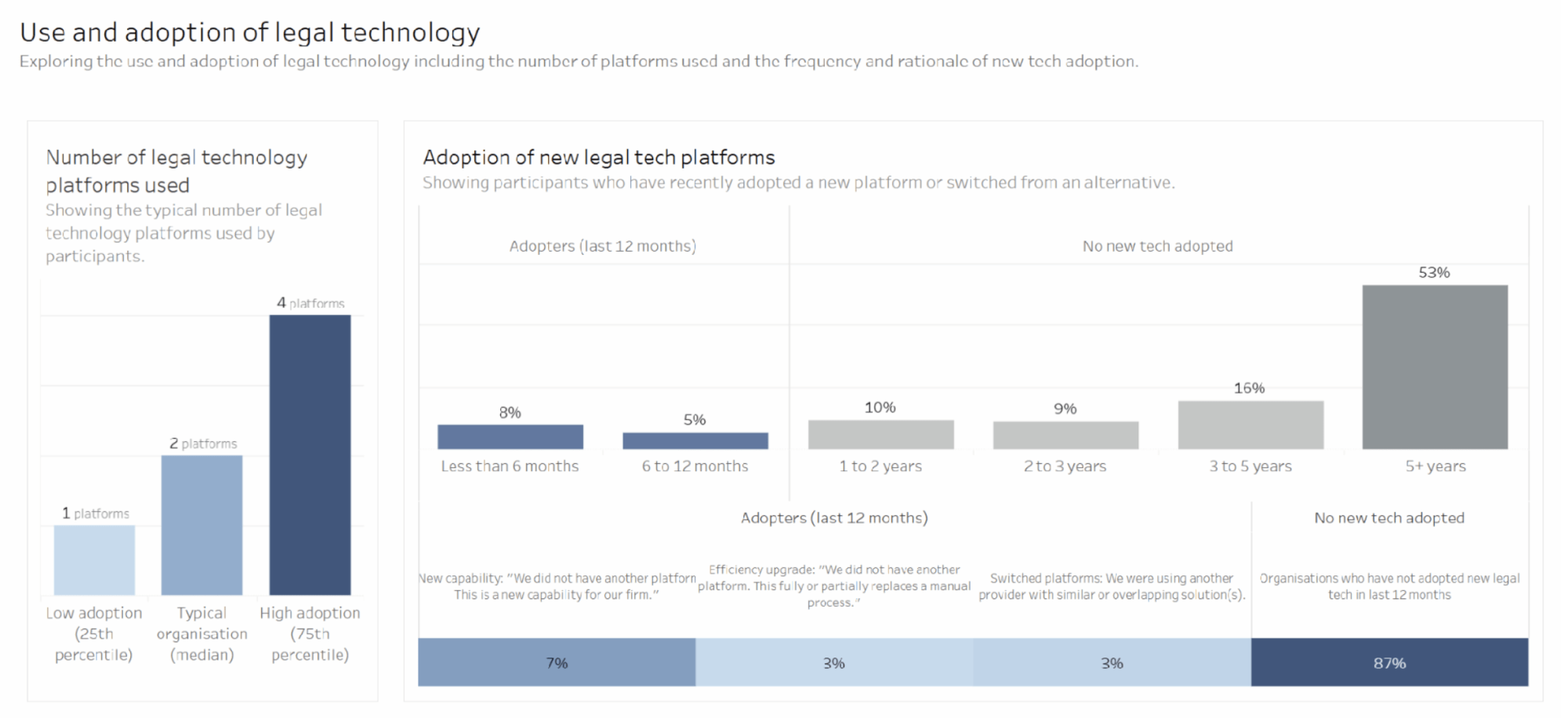Although the majority of law firms are planning to increase investment in legal tech over the next year, more than 50 per cent haven’t adopted any new legal tech in over five years, according to new research.

New findings from Agile Market Intelligence have shown that a concerning number of legal organisations in Australia have not adopted any new legal technology in the last five years, with adoption moving forward set to be more “capability-led”.
The 2025 Agile Market Intelligence Legal Tech Review has revealed how legal professionals across Australia are engaging with legal technology. While many firms continue to operate on low-tech budgets with limited adoption, there are signs of increased investment intent moving forward.
The review is based on survey responses collected from 1,250 legal professionals across Australia, with research conducted between 4 February and 5 May 2025. The sample includes 914 professionals working in private practice and 269 in in-house roles, spanning across a range of firm sizes, locations, and practice areas.
According to the findings, 53 per cent of legal organisations have not adopted any new legal tech in over five years, with only 10 per cent of firms planning to significantly increase their legal tech spending by more than 20 per cent in the next 12 months. Fifty-eight per cent of all firms said they plan to moderately or significantly increase their legal tech investment over the next year, with this spending concentrated mainly across mid-sized and large firms.
Agile Market Intelligence director Michael Johnson said these findings mean that for the legal profession, “the intent to invest is there”.
“The next 12 to 24 months will be shaped by whether tech vendors can convert that intent into action through better onboarding, measurable outcomes, and practical use cases,” he said.
Further, nearly half of sole traders (49 per cent) reported spending under $5,000 per year on legal technology, and 11 per cent of all legal organisations reported spending more than $100,000 annually. One in three large firms (33 per cent) with over 1,000 employees reported spending over $500,000 on legal technology.

In terms of discovering new legal tech, 58 per cent of legal professionals said peer recommendations and informal referrals had led buying decisions, with the process being informal and highly relational.
According to the review, trusted recommendations and firsthand exposure at events carry more influence than traditional marketing tactics, with tech vendors needing to be embedded in legal communities, as well as generating referrals using their existing user base.
“Legal buyers are not easily sold to. If you are not embedded in their networks or conversations, you are invisible. Social proof is not optional, it is a requirement,” Johnson added.
Forty-two per cent of survey respondents reported conducting independent online research to find new technology solutions, with 39 per cent exploring new platforms while attending legal or tech-specific events and conferences.
Nineteen per cent indicated they discovered tech through direct vendor outreach or sales calls, and only 10 per cent rely on social media platforms such as LinkedIn for discovering legal tech tools.
Despite there being a plethora of legal-specific technology tools in the market, the research also revealed that the median number of legal tech platforms in use across firms is currently two.
Fifty-three per cent of legal organisations reported that they have not adopted any new legal technology in the past five years, with only 8 per cent of respondents adopting a new legal tech solution within the last six months.

Firms are also more likely to adopt new tech when the solution addresses a specific gap in their workflow or enables a new capability they could not previously support, underscoring the importance of differentiation and solving substantive business problems, not just marginal process improvements, according to Johnson.
“The bar for adoption is high. Legal teams will only invest when the tech unlocks something genuinely new,” he said.
“Faster alone is not enough. Vendors need to solve hard problems, not just make existing workflows 10 per cent better.”

Lauren is the commercial content writer within Momentum Media’s professional services suite, including Lawyers Weekly, Accountants Daily and HR Leader, focusing primarily on commercial and client content, features and ebooks. Prior to joining Lawyers Weekly, she worked as a trade journalist for media and travel industry publications. Born in England, Lauren enjoys trying new bars and restaurants, attending music festivals and travelling.